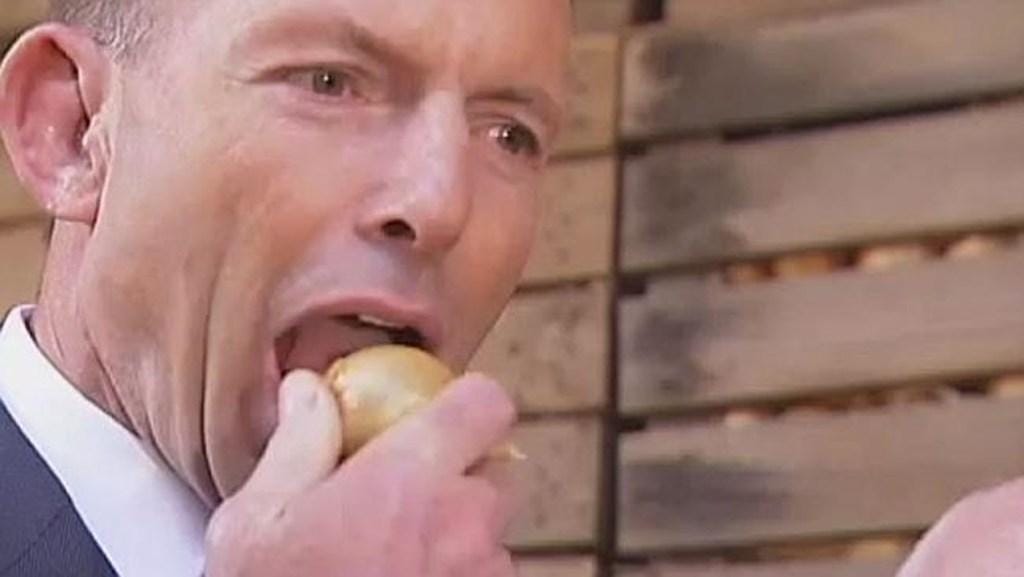FCD#1: Branding: there's bad, there's worse and there's Illiberalism™
Starting the series on Fidesz's communication disasters with a big one.
You can bet that almost anyone who mentions Orban’s “illiberalism” is a lazy midwit, usually an apparatchik carelessly throwing it on top of the standard insults to spice up the 2-minutes-of-hate against Hungary, because The Guy himself didn’t mean it to become what it is infamously interpreted as today. He clearly expressed it so! Unfortunately for him, he did it in Hungarian, in an era when we weren’t so scrutinized to preserve a clear record.
It was also a case of fatally wrong branding, as usual with Fidesz, as you’ll see.
Deep dive ahead.
(Political advice is not for free)
How “illiberalism” sounds
The word itself sounds the same to foreign and Hungarian ears. Nothing’s lost in translation there.
I’m illiberal, therefore… I’m against freedom? I hate liberty? Not really, as I’ll make it clear later. For now, focus on your gut feeling when you hear “illiberal”.
It sounds like “I’m a baddie”. It sounds so nasty and negative that no one, even among the heavy hitters in the front lines of Fidesz’s kulturkampf identifies with it.
Google finds 9 results to “illiberális vagyok”, I’m an illiberal, one quoting Orban, the others someone being sarcastic. There are more people identifying with “Hungarism”, our local, quasi-Quisling version of Hitlerism (500+ results).
Fidesz sucks at many things, their shortcomings could fill an article series1. Branding is just one of them, but it’s a biggie, and Illiberalism™ is definitely a crown jewel.
Money’s not the problem
The government’s communication, since 2010, fits the following mold: have more often than not a worthwhile, even sophisticated message, then present it to the public in the worst possible form.
Imagine you had something important to communicate, and all you can do — well, you could do anything, but somewhere, in the Big Black Box that Fidesz is, someone strongly believes this is the only way to do it — is to have Tony Abbott present it to the public, while eating a raw onion.
Yeah, this is looks great. Keep at it! No, even better, double down on it!
Over and over again, every week, every time the government is about to announce something, it will be done by Tony and the onion; a guaranteed, well-replicated disaster, yet Fidesz refuses to change; it’s been the same for past 12 years, it’s as bad in 2022 as it was in 2010. They didn’t get any better at brand management, shown no willingness to acknowledge any mistake about their overall communication strategy, yet they can afford to stay bad at it: as long as the opposition is equally stubborn to conduct its own self-check, and they carry quite a baggage of shortcomings of their own, Fidesz can afford to eat a lot of loss and still win, again and again.
I shouldn’t be the one setting the record straight, I’m not here to right the wrongs of the behemoth that Fidesz’s soft power establishment is; if they want my services, they can pay me to do so, they have fucktons of money.2
This time though I’ll have to save Orban — yet again — for free — yet again — , since “illiberalism” is a biggie, and after 8 years it’s still as fresh as new, thrown around all the time whenever Hungary gets a foreign mention.
In the future of this series, I’ll try to focus on the Hungarians’ reaction to Fidesz’s communication failures, to give you some insight on the nation’s more nuanced relation to the party they’ve elected with a 2/3 majority, four times in a row by now. In this regard, “illiberalism” is mostly a foreign PR problem. The term itself (not the concept behind it, that’s alive and well) was absent from Orban’s 2022 inauguration speech, covered on this substack with annotations, so I assume that even Fidesz wishes to memory hole it by now; if facing a domestic audience, riding high on a fresh victory was not the right time to bring it up, it’s dead for good.
Or so they wish, but it’s not up to Fidesz anymore. That’s the problem with bad branding: it can still be memorable.
The illiberalism speech
Everyone’s talking about “illiberalism”, yet very few ever cared to actually read what the Boss meant by it. How do I know? Because there’s no proper, canonical English version of the original speech in Tusnádfürdő on 26 July 2014. There are multiple translations online, each bad in its own way.
The official English repository for the prime minister’s speeches only goes as far back as November, 2015.3
The definition of Illiberal Democracy predates that by more than a year. The government's portal has an English translation, and here’s another translation, both kind of abysmal, so I’ve made my own for the relevant segment lifting from both and using the Hungarian transcript for adjutsments. Mine is the best out there, which is one more reason to
this post.
Here we go:
When it comes to a relationship between two human beings, the fundamental view of the liberal way of organizing a society holds that we are free to do anything that does not violate another person’s freedom.
The twenty years of Hungarian environment preceding 2010 was founded on this theoretical, conceptual starting point. It accepted a principle that is otherwise a general principle in Western Europe.
In Hungary however, it took us twenty years to be able to articulate the problem with this idea, that, besides being very attractive on an intellectual level, never made it clear, who is supposed to determine at what point my freedom is being violated.
And since this is not self-evident, somebody must determine it.
And since we didn’t appoint anyone to decide this, therefore, based on our everyday life experiences, it was always the stronger party who decided this. We constantly felt that the weaker were trampled over. It was not some kind of an abstract principle of fairness, originating from a recognition of mutual freedoms, that decided conflicts, instead the stronger party was always right: it is always the stronger neighbour who decides where the driveway will be; it is always the stronger party, the bank, who decides the interest rate on mortgages, and who changes it mid-term if needed, and I could go on with a long list of examples of what individuals and families with weaker economic defences experienced regularly during the previous twenty years.
Our suggestion, and we will try to build the Hungarian state around this, is that this should not remain the organizing principle of Hungarian society.
- Viktor Orbán, Tusványos, 2014
What kind of “liberalism” is he opposing?
There is a unique approach to liberalism in Orban’s 2014 definition: it’s both economic and cultural, and broadly inclusive, focusing on the injustices that can arise from libertarian/neoliberal ideologies, on the downsides inherent to zealous individualism.
It’s an amalgamate targeting the disillusionment of the Eastern European individual of the Post-Socialist Era, the war-like disaster little people suffered in their lives as the Western promises failed to materialize.
He’s describing the ugly, social darwinist underbelly of the Post-Socialist Era’s anarcho-capitalism that has ravaged these lands since the 90s. (Aka. “wild capitalism”, in Hungarian.)
It accuses the ones in power of indirect cruelty resulting from the state pretending that “man VS bank” is a conflict between two equals, in the private sector, an area the government must stay out of. This includes his party and himself, which had been in power for 8 years in total by 2014, so it’s somewhat self-critical. The we there literally means him and his fellow party members, not just us, Hungarians.
“Freedom is banned XDD I’m Dictator xddd Heil Victor and no homo ok” - Orbán, Tusványos, 2014
What illiberalism is definitely NOT, at least based on this defining speech, is Orban pointing at the Bible or The Green Book and declaring that from now on it’s his business who puts what genital where, or what you can say or think. It’s not a stance against broadly defined old school liberalism, which still had the strongest claim for the brand “liberal”, making “illiberalism”, without the context above, or in an — more often than not maliciously — incorrect context so savoury.
Can it be rebranded?
A nationalist state, that is more socially aware and active, with a duty to intervene on behalf of the individual, should they face unequal power relations within our domestic free marker capitalism.
A more socialist nationalism.. yeah that brand is also kind of burnt.
“Anti-libertarianism”? Still a negative stance, and libertarianism itself is less known around here. Lib this, lib that, too close to the original.
“National nepotism”! We’re all a big family, we should take our of own side! It would be a brave choice.
It’s a though challenge, but the bar, to come up with a better one, other than “illiberalism”, is very low. Leave a comment if you can think of a better one!
Sunk costs
Orban sticks to his guns, in case of illiberalism he seems to be the only one to do so, even within his own tribe, the first and the last, from his cold, dead hands and all. It’s admirable, on some level, bag holding your losses to the bitter end. Credit due, credit given.
This inherent organizational stubbornness has its costs though, and it did cost them a lot in the past 12 years, and in case of “illiberalism”, will continue cost them internationally for the foreseeable future, unless the clarity presented in this post corrects the record (very unlikely to happen).
The broader topic worths a revisit, so more Fidesz Communication Disasters to come, thanks for making it through FCD#1!
***
Art by dream.ai
And they will.
PM me! I like money. I also like cars. An office with a view. I’m a man of simple pleasures.
https://miniszterelnok.hu/category/beszedek-angol/ (Official PM website / speeches in English)




